QuestionQUESTION: Hi. We have a 12 month old Boston Terrier named Lily that is very very hyper
and loves to play...constantly. The first question is, how to we stop her from
jumping on us and pawing us when she wants to play? I know she just wants
attention, but sometimes it really hurts! And, she also does this to other
dogs, and even cost my dad an $200 trip to the vet with his pug's scratched
eye. Are we doing a disservice to her by allowing her unlimited access to her
toys? We take her on many walks, but her energy is never ending!
The second question is that every time we enter the room, she gets excited
and urinates. This doesn't bother me as much in our home as it does in other
people's or in public. Is there something we can do to calm her when she is
around people or other dogs? This is our 20th week in training class, things
have gotten better with her, but I just hope there is something else I can do
to make public situations not so stressful. WE have tried ignoring her or
walking past her when we enter, she just jumps up and still urinates. We are
now trying putting our palms on her shoulder blades and making her stay
down as we greet her (per an instructor's advice), but this still doesn't seem
like the right solution. Please help!!
ANSWER: Hi, Gail,
Thanks for the question. I'm sorry you're having trouble with your wonderful little doggie.
How much hard vigorous playful activity does she get every day? Do you ever play tug-of-war with her? Have you ever scolded her for nipping or mouthing you, especially when she was younger? What brand and type of dog food does she eat?
I look forward to hearing back from you,
LCK
---------- FOLLOW-UP ----------
QUESTION: Hello again,
In response to your questions, she gets a 20 minute walk as soon as she
wakes up, followed by 30-minute hard play (either chasing the ball or laser
pointer) right after she eats breakfast, then she usually gets more play at
least 3 or 4 more times throughout the day and usually one more walk. We
also take her to training classes every Tuesday night for an hour and at least
once a week to doggy daycare for 4 hours. We try to stay away from tug-of-
war with her, as we have been advised that if we cannot win this could cause
her to think she is the boss... she is 23 pounds, all muscle with jaws of steel!
We do scold (using the uh-uh, no! tactic from watching Ceasar Millan). And if
she persists, we give her a few minutes time out in her crate. We feed her a
mixture of dry Nutro small puppy bites and Natural Balance small bites,
mixed with some plain non-fat yogurt (per vet suggestion for her gas). She
has a lot of toys, but does not like to play alone. The only thing she will do
alone is rip apart a stuffed animal toy, otherwise, she wants to play ball with
us. She will bring her ball over to us and continuously push it against our leg
or paw at us until we throw it for her. We recently learned the worst thing we
can do is throw it for her when she behaves this way and that we should be
initiating play. Does this mean we should put her balls out of her reach until
we are ready for playtime? Thanks for your help!
Gail
AnswerHi, Gail,
Thanks for the info.
As you probably know dogs are descended from wolves and still have some of the same instincts as their wild brothers. For wolves the ultimate payoff in life is to bite their prey and rip away its hide to get at the meat. That same biting action is what tug-of-war does for a doggie. It provides the ultimate release of tension. When a dog doesn't have a really solid means of reducing her inner tension she'll often exhibit problem behaviors. Believe it or not urinating is one way of relieving inner tension and stress! In fact there's a direct connection between the stress hormone cortisol and the production of ADH, or anti-diuretic hormone. The more stressed an animal is the more she needs to urinate.
Going back to wolves: the way a wolf pack operates is a rare thing in nature. Most predators don't live in social groups because in order to be successful as a hunter you have to have strong urges to chase, bite and kill things on a moment's notice. So in most predators, once the kids reach adolescence it's "bye-bye, and off you go." In wolves, the young stay around until they're at least 2 yrs. old, sometimes a lot longer. That's one anomaly.
Another is that wolves and human beings are the only land mammals that will routinely hunt animals that are larger and more dangerous than themselves. For humans this involves weapons like spears, bows and arrows, and in our modern world, rifles. For wolves it involves intense group cooperation. (Killer whales also hunt larger animals by working together.)
If you can imagine how a wolf pack would operate while hunting if every little move, every adjustment to the deer or moose's shifts in energy and strategy, every minor change in terrain, had to be dictated from above by a "strong pack leader," you'd realize that no one wolf (or dog) is smart enough or capable enough to take on that role. There has to be a kind of emotional fusion that takes place between every single member of the group so that they work in unison harmony. This is why some very old-fashioned researchers believe there's more than one pack leader when wolves hunt, when in reality the roles shift because each wolf has a different skill set, some that will be required in certain situations and won't be needed in others. So when that wolf's skill set is needed the other wolves adjust and "follow" his lead, though the truth is no wolf ever leads the hunt; the prey does. They just follow him.
In fact it's now known that there's really no pack leader at all in wild wolf packs, and all the behaviors that we've been taught signified a dog who "thinks he's alpha" don't exist in wild wolves! No wild wolf goes through openings or crosses thresholds before the others. No wild wolf walks ahead of the rest of the pack at all times. No wild wolf ever does an "alpha roll" on fellow pack members; that's reserved for members of rival packs, sometimes as a prelude to real violence and death.
One more thing to consider is how the wolf's brain is designed to function in the wild: hunting deer, elk, moose, and bison is dangerous. These are animals that could very well kill an individual member of the pack who could be knocked senseless by its hooves or gored by its antlers. So since the survival instinct is supposedly the most important factor in animal behavior, guess what? No wolf ever really wants to go out and hunt something that could kill or seriously injure him. But nature has designed a mechanism where living in a group setting creates tension and stress for predators. They have a constant need to bite and kill things, and on a subliminal level that includes their packmates. So as time passes after each kill, tension and stress build up in the individual pack members. Once that tension reaches a kind of critical mass, the prey drive overrides the survival instincts of the individual wolves, and they finally leave the den and go searching for prey. And one of the primary motivators for hunting is that grabbing hold of the prey animals hide, ripping at it, pulling it away from the meat and bones, is the ultimate form of emotional satisfaction for wolves (probably matched only by mating). In other words for canines, biting onto something really hard and pulling on it just as hard is not only the ultimate satisfaction in life, it's also the ultimate stress reducer.
Which bring us back to your lovely little Boston and why it's so important for you to play tug-of-war with her, and to always let her win, and to praise her enthusiastically for winning. It's also absolutely necessary for you to stop using a laser pointer. Imagine you're a dog and your urge to chase something gets activated. This also activates your need to bite, correct? And biting your prey is also the ultimate release of tension. So the laser pointer stimulates tension but doesn't give the dog any release. Playing tug will.
By the way, this lack of being able to utilize her prey drive to the fullest is also part of the reason she's so obsessed with playing fetch, because at least in that scenario she can actually bite the ball when she catches up with it. And there's nothing wrong with her initiating the game. It's her way of telling you that she's stressed and needs your help in reducing her internal tension. If you're worried that she'll think she's the pack leader, don't. All you have to do is give her a command like sit or down before you start playing. In fact if I were you I'd re-train all her commands as part of a game of fetch or tug. She'll be much more obedient afterwards.
Here are some links that will explain some of this stuff further:
http://www.tiny.cc/MythofTug
http://tinyurl.com/2q2esp
http://tiny.cc/ProperAlphaRoll
Sorry for the long reply, but I thought it would be helpful for you to get a solid understanding of what's causing her problem behaviors, and why playing tug-of-war with her and not worrying so much about being alpha will help.
LCK

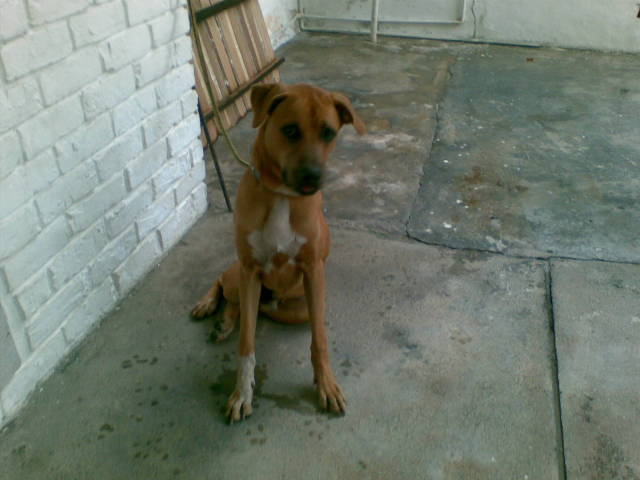 dogs behaviour
QuestionMy 8 months old Dusto
QUESTION: My puppy
dogs behaviour
QuestionMy 8 months old Dusto
QUESTION: My puppy
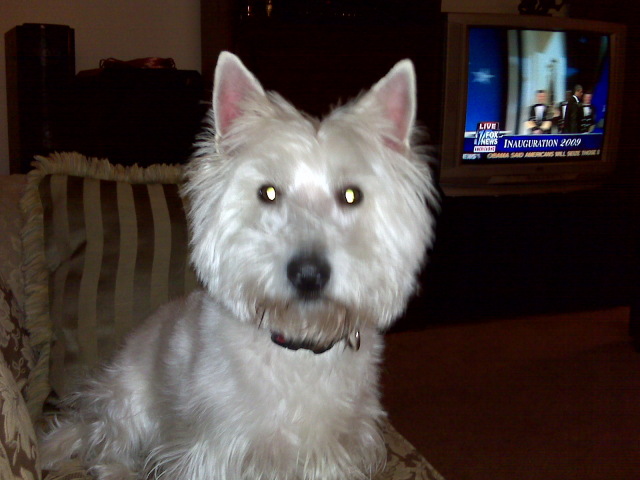 Companion for Lonley Westie
Question
Shannon
We have a 5-year-old neutered Westie w
Companion for Lonley Westie
Question
Shannon
We have a 5-year-old neutered Westie w
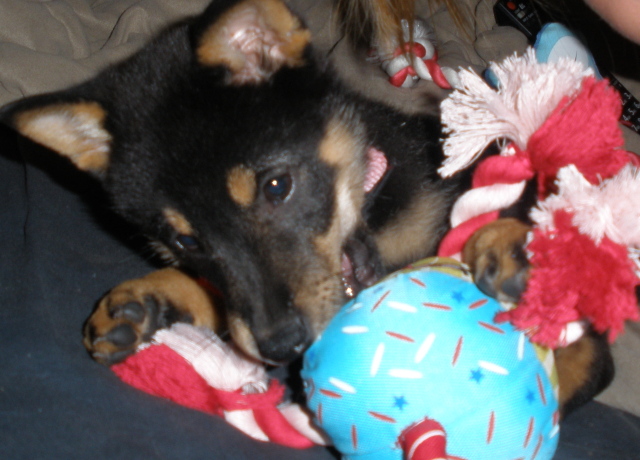 My Shiba Inu
Question
Lola
I bought a registered Shiba Inu puppy fro
My Shiba Inu
Question
Lola
I bought a registered Shiba Inu puppy fro
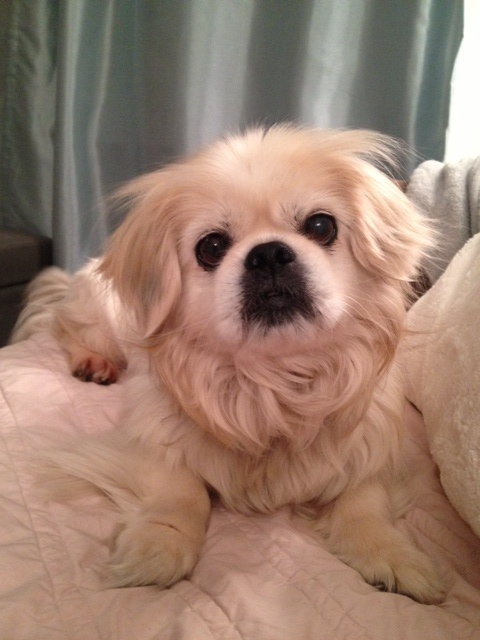 Nightmares?
Question
Beethoven
Hi Melissa, Ive had my very h
Nightmares?
Question
Beethoven
Hi Melissa, Ive had my very h
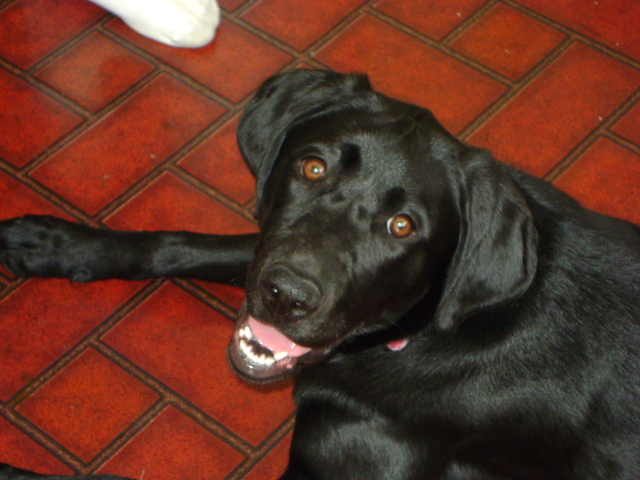 Black lab - 1 yr
QuestionSheba
QUESTION: My lab loves to bite her
Black lab - 1 yr
QuestionSheba
QUESTION: My lab loves to bite her